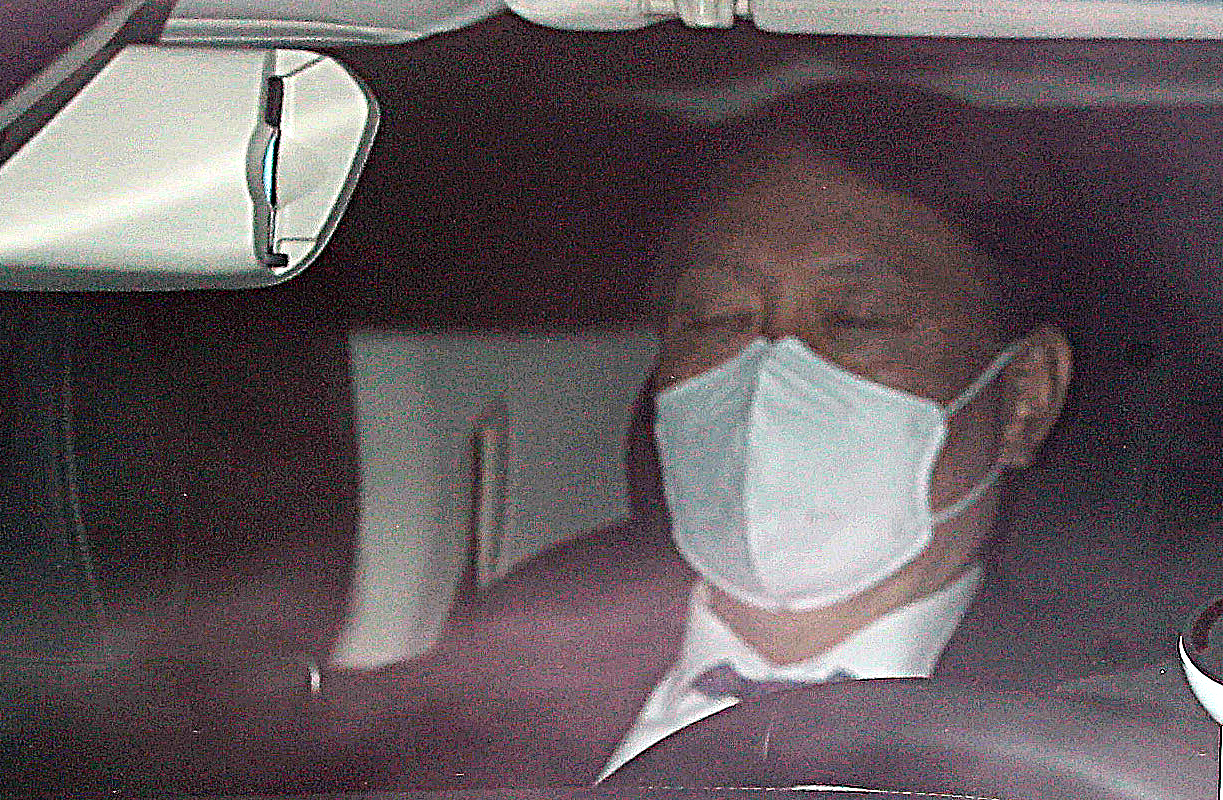 |
Chief prosecutor Yoon Seok-youl heads to his office in Seocho-dong, southern Seoul, by his car on Tuesday morning. (Yonhap) |
Chief prosecutor Yoon Seok-youl blasted the ruling party’s move to create a separate agency to investigate six types of crime such as abuse of power and corruption, calling it an attempt to “disband the prosecution” and “annihilate the rule of law.”
The prosecutor general, who fought a yearlong battle against former Justice Minister Choo Mi-ae over investigative rights, said the move amounted to “regression of democracy and destruction of the spirit of the Constitution” during his first ever media interview, published by the Korean-language daily Kookmin Ilbo on Tuesday, four months before his two-year term expires.
“I can say this because I have investigated corruption by those in power for over 20 years,” said Yoon, who has led probes into presidential election funds, slush funds run by major business conglomerates, the nation’s spy agency’s meddling in an election campaign and abuse of power by a friend of former President Park Geun-hye.
Probes into these cases would never have succeeded if the prosecution only had the right to indict and no investigative rights, Yoon stressed.
He also said more time is needed to prove that the police can fully investigate them on its own, or that the prosecution’s involvement can hamper probes.
If the Moon administration thinks the prosecution enjoys too much power, they should divide the prosecution instead, by having prosecutorial agencies for anti-corruption, financial crimes and narcotics outside the command of the prosecutor general, Yoon said.
The chief prosecutor said he cannot accept depriving the prosecution of investigative rights as it would only degrade its capability to fight corruption.
Yoon hit back at the ruling party’s claim that only the South Korean prosecution has both investigative and indictment rights.
“Countries with advanced judiciary systems such as the US, Germany, France and Japan give prosecutors the right to directly investigate most serious crimes,” he said, mentioning the US prosecution’s probe into the Enron accounting scandal and the Japanese prosecution’s investigation into the Lockheed bribery case.
Regarding the ruling party’s claim that its idea of a new agency for “severe crimes” was modeled after Britain’s Serious Fraud Office, Yoon said the SFO was launched to have both investigative and indictment rights.
After Yoon took office in July 2019, the prosecution has investigated former Justice Minister Cho Kuk and his family over document forgery and illegal investments; suspicions that presidential aides pulled strings to make President Moon’s friend win a mayoral election; and allegations that the government fabricated data in its economic feasibility assessment of the aged Wolsong-1 nuclear reactor.
“Under our Constitution, democracy is a concept that encompasses the rule of law. If a person in power commits a crime, he should be punished equally, and the law must apply fairly,” he said, adding that he believes the prosecution’s anti-corruption work since the launch of a civilian government in 1993 has played a meaningful role in getting rid of special immunities for the privileged.
“There was a time when criminal punishment of chaebol or politicians was unimaginable. But as Koreans began to see them get criminal punishment, authoritarianism crumbled and citizens’ awareness of their rights grew. This ‘legal standard’ made society take a step forward and strengthened democracy,” said the prosecutor general.
“I have gone through many unwanted transfers and disciplinary measures throughout my time as a prosecutor, but those were merely personal disadvantages, and were not as severe as what is happening now -- an abolition of the prosecution.”
There was no mention in the interview of his thoughts on his rise as a presidential hopeful in public polls.
By Kim So-hyun (
sophie@heraldcorp.com)








![[Today’s K-pop] Blackpink’s Jennie, Lisa invited to Coachella as solo acts](http://res.heraldm.com/phpwas/restmb_idxmake.php?idx=644&simg=/content/image/2024/11/21/20241121050099_0.jpg)